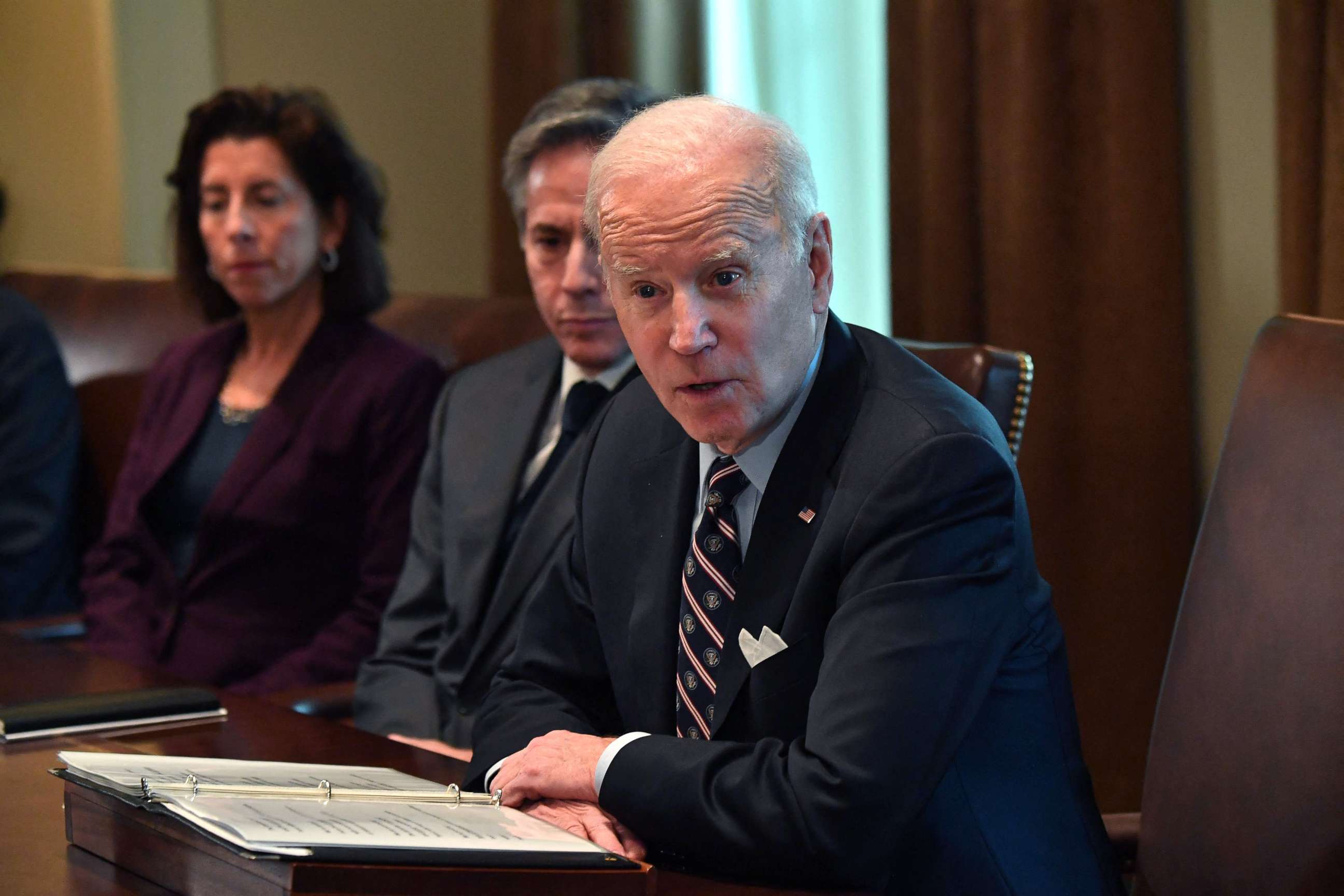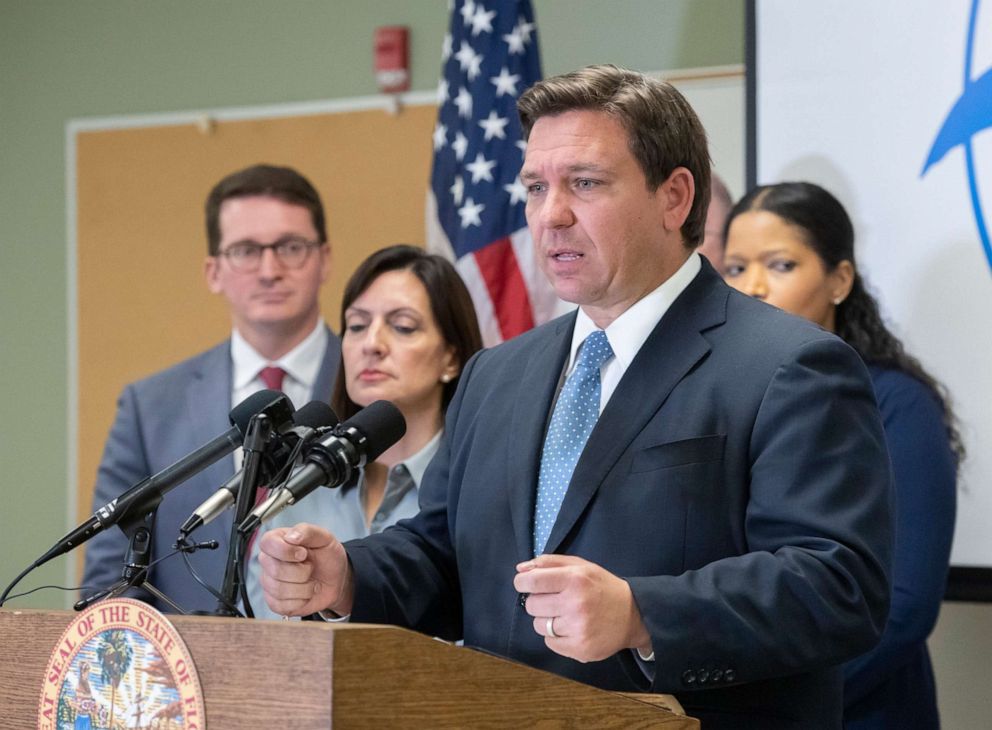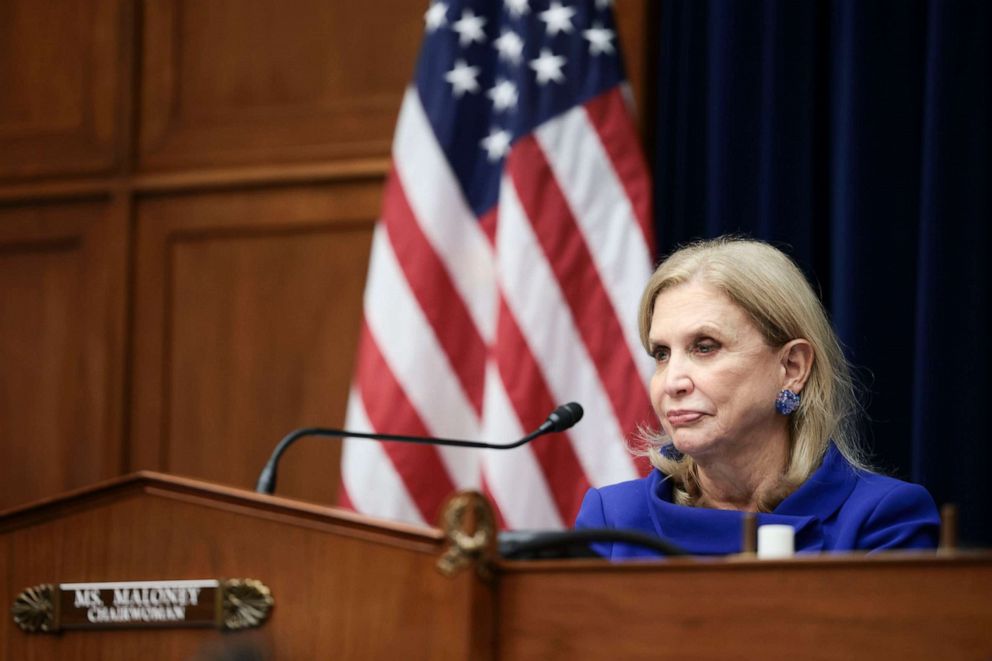Putin's escalation leaves tough choices for Biden: The Note
There are more complicated questions ahead for the president.
The TAKE with Rick Klein
Russian President Vladimir Putin has managed to unite the world against him -- and has given President Joe Biden's White House a villain to rally against as well as a political scapegoat for spiraling prices and more.
What he hasn't done, though, is make for an easy ending to the current conflict. That means more complicated questions ahead for the president, along with more opportunities for politics to collide with national security realities.
The Biden administration's decision not to help Ukraine get Russian-made fighter jets offered up by Poland is just a taste of why staying out of a war you want over is easier said than done. U.S. officials have confirmed reports of civilians being targeted and children being killed as part of Russia's unprovoked invasion.

Notably, a White House that has officials senior enough to remember the history of red lines is not engaging in hypotheticals about whether anything would change in the U.S. stance if Putin uses chemical or biological weapons.
Biden's moves are already giving Republicans a fresh dose of their own unity on Ukraine: "Enough talk. People are dying. Send them the planes that they need," Sen. Mitt Romney, R-Utah, said Thursday.
Without drawing any new lines, the president was again clear about what the outcome of this war must be: "Ukraine will never, never be a victory for Putin," Biden said Thursday.
But it might still be that only the United States can guarantee that outcome.
The RUNDOWN with Averi Harper
A Florida bill that places restrictions on classroom instruction and workplace training around issues of race is heading to Gov. Ron DeSantis' desk for signage.
Florida's H.B. 7, often referred to as the "Stop Woke Act," bans lessons that make a student or employee feel they bear "personal responsibility for and must feel guilt, anguish, or other forms of psychological distress because of actions, in which the individual played no part, committed in the past by other members of the same race, color, sex, or national origin."
Once signed into law, students or employees can seek damages under Florida's civil rights laws. Republicans have framed the bill as being about "individual freedom."

"This bill is not about individual freedom. This is a continuation of a national agenda to whitewash history all because we don't want white children to feel uncomfortable about true Black history," said Florida state Sen. Shevrin Jones during debate. Jones is Black.
The language in the bill mimics that of bills considered in dozens of other states across the country that have taken aim at what Republicans call "critical race theory." It also comes after the Florida Senate passed a bill dubbed the "Don't Say Gay" bill by critics. It limits instruction on gender identity and sexual orientation and creates legal liability for schools by allowing parents to sue if LGBTQ issues are taught.
DeSantis, who is up for reelection in November and is considered a potential 2024 presidential contender, often defends these kinds of efforts.
"The 'woke' is the new religion of the left," DeSantis said at CPAC in late February. "It's about tearing up the fabric of our society and trying to replace it with something that will be much, much more sinister."
The TIP with Alisa Wiersema
With the impact of the 2020 Census results still playing out through some states' redistricting efforts, the Census Bureau announced Thursday it had undercounted Hispanic, Black and Native American populations. The bureau also said it overcounted whites and Asian Americans.
Census Bureau Director Robert L. Santos noted that the "results show statistical evidence that the quality of the 2020 Census total population count is consistent with that of recent censuses," which he said is "notable, given the unprecedented challenges of 2020." Santos also acknowledged the recent findings involve "many of the same population groups we have historically undercounted."

Upon the release of the new information, Rep. Carolyn B. Maloney, who serves as chair of the House Oversight Committee, said the updated findings show Latinos -- who accounted for more than half of the nation's population growth in 2020 -- were undercounted at three times the rate of the 2010 Census.
"Now these communities could miss out on funding for critical services and suffer diluted representation at every level of government from Congress to school board," Maloney said.
A total of 18.8 million people weren't counted -- triple the margin of a decade ago -- indicating an apparent worsening trend. Advocates had been long calling for the census process to be re-examined to better account for the country's diverse population, and now it remains to be seen whether changes will be implemented in the next decade.
NUMBER OF THE DAY, powered by FiveThirtyEight
71. That's the percentage of Russians who said they approved of President Vladimir Putin in a February poll conducted by the Levada-Center, a respected independent pollster in the country. Notably, Putin's approval rating has never slipped below 59% in the Levada-Center's data either. But as FiveThirtyEight's Kaleigh Rogers writes, there's reason to think the war in Ukraine might change Putin's popularity at home, given the economic realities of the sanctions and the public protests against the war.
THE PLAYLIST
ABC News' "Start Here" Podcast. Start Here begins on Friday with CDC Director Rochelle Walensky explaining the current state of the COVID pandemic. Then, ABC's Rick Klein reports on the 2020 Census undercount. And, ESPN's T.J. Quinn breaks down Brittney Griner's arrest in Russia. http://apple.co/2HPocUL
WHAT YOU NEED TO KNOW TODAY
Download the ABC News app and select "The Note" as an item of interest to receive the day's sharpest political analysis.
The Note is a daily ABC News feature that highlights the day's top stories in politics. Please check back Monday for the latest.




